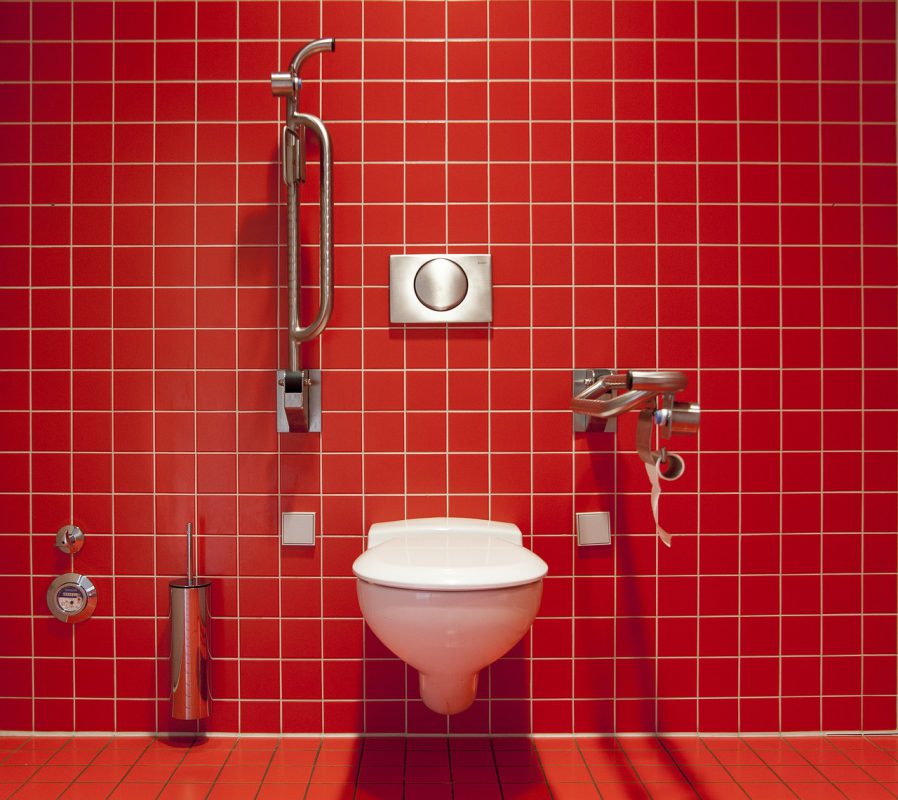What You Should and Shouldn’t Flush Down the Toilet
Being green and conscious of how our actions impact the world is more important than ever, especially since we’ve all seen the effects that carelessness has had on our planet. Hearing the news is enough to raise alarm bells, what with football pitch size fatbergs causing floods and millions of pounds of damage, and littered seas – so let’s work together to prevent it. Understanding the basics like what you can and can’t flush down your toilet is the first step in the right direction.

- Pets
Shocking – we know, but pets have been found in the sewers, including hamsters, guinea pigs and goldfish. If your pet died, it’s likely it was a result of disease or parasite, which can be passed through the sewers. Flushing corpses will block drains and sewers, contaminating all water passing through. - Wet wipes
Antibacterial wipes, baby wipes and face wipes do not disintegrate in water and therefore will aid the growth of a fatberg monstrosity. Even if the packet reads that it is biodegradable, this does not mean that you can flush it or that it will degrade in a week, month or year – it’ll take a long time to breakdown. They’re better off in the bin. - Dental floss
If you’ve been regularly flushing dental floss, chances are it’s formed some sort of net or ball which has grown over time and festered in your pipes or in the sewers below. Dental floss is not biodegradable and therefore has nowhere to go and will inevitably catch other particles that pass through the system, resulting in a blockage. - Cotton buds
Flushing cotton buds or cotton pads for that matter, is bad for your drainage system and the planet. Cotton buds are so small and thin that they’re able to pass through fine filtration screens, which means they end up in rivers and the sea. Like straws, cotton buds are also looking to be banned in aid of reducing our plastic waste because it’s killing animals and polluting the environment. - Hair
Just like dental floss, hair clogs our drains quickly, forming giant nets or balls that trap unpleasant odours and particles, causing clogs. When cleaning your hairbrush or removing hair around a plug, put it in the bin – don’t flush it, as you’ll be creating the same problem. - Contact lenses
Commonly made from acrylic glass and silicones – contact lenses are small and can easily find their way into seas and rivers and can be consumed by living things. - Cigarette butts
They may be small but that’s no excuse to flush cigarette ends down the toilet. They do not break down and contain chemicals that will contaminate your local water supply. It’s a well-known fact that cigarette ends are the most common item that will be found littering the seas – so stub them out and drop them in the bin. - Paper towels
If it’s not proper toilet roll, it won’t break down – if it doesn’t clog your home’s pipes then you’ve been lucky but when it goes further, it’ll create problems in underground sewers. That means your Kleenex tissues and blue paper in the office can’t be disposed of in the toilet!
You may have never considered the ‘ply’ count of the toilet roll you buy but generally speaking, the higher the ‘ply’ count the thicker the material is and the smaller the number, the easier it will disintegrate once flushed away.
- Fat, oil or grease
You wouldn’t pour fat, oil or grease down your kitchen sink – so why flush it? It’s the same thing but likely to become someone else’s problem – which really isn’t the right answer. When these liquids cool off they become solids and so, as you can imagine they wreak havoc – lining pipes and sewers in a thick sludge that won’t budge without the help of a technician. - Sanitary products
Tampons and sanitary towels are too thick to flush, their entire purpose is to absorb and so, will only expand once flushed. - Food
Sewer rats exist and if you’re flushing food, chances are they will be curious of the food source. If you’re not careful, a rogue rat could just make his way up the sewer pipes and into your property. - Cat litter
Litter works to absorb cat’s urine and is heavy so will be difficult to flush and push through the system. Cat’s waste can be toxic to humans – so putting it directly into your local water system is not a good idea.
The point is, don’t flush anything other than toilet paper and human waste. Pop everything else in the bin and you could just save yourself a whole lot of time and money.
Power Rod have a wealth of experience within the industry and have provided countless customers throughout Watford, Luton, Aylesbury, Bedford, Stevenage, Milton Keynes, NW London, High Wycombe and the surrounding areas with first-rate services for years. We’re able to offer a number of comprehensive services including drainage repairs, jetting, unblocking, drain excavations, cleaning, CCTV drain surveys and cover & gully grate repairs too. For more information or for advice – call our friendly team today – we’re happy to help.






